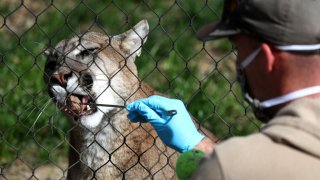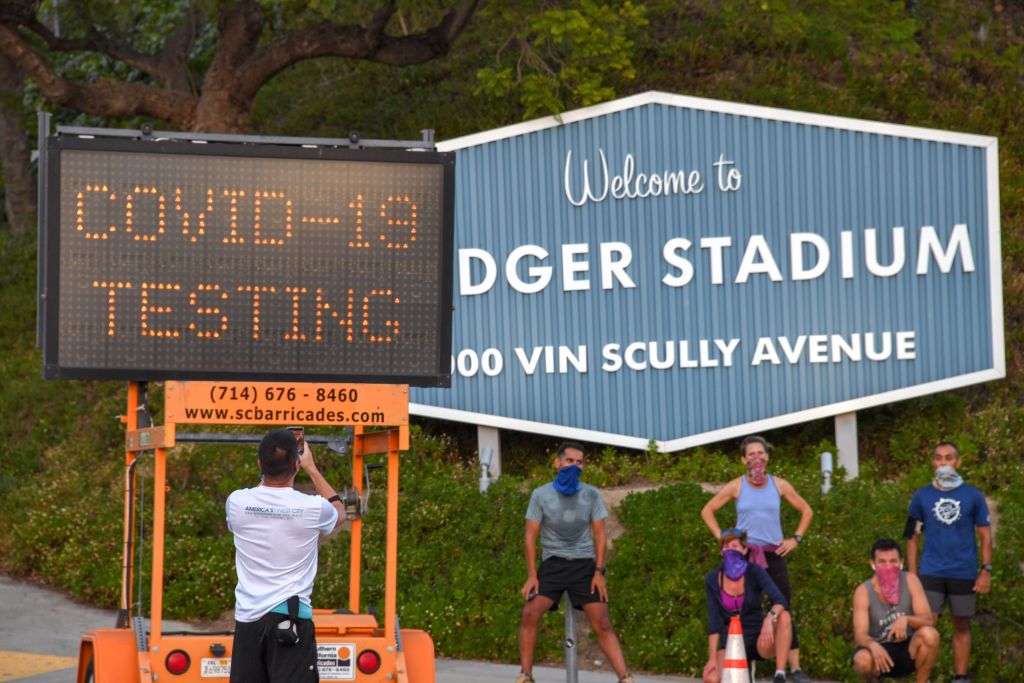
Gov. Gavin Newsom Tuesday signed a bill introduced by a Southern California assemblyman to restrict the use of certain rat poisons that have been linked to the deaths of mountain lions and other wildlife.
The measure, authored by Assemblyman Richard Bloom, D-Santa Monica, limits the use of second-generation anticoagulant rodenticides statewide until the Department of Pesticide Regulations director certifies that specified measures have been taken to evaluate, restrict and use the poisons only when necessary, according to the governor's office.
The assemblyman said the poisons "pose a serious threat to our wildlife" and called the bill a "common-sense measure that curbs the use of dangerous poisons until the re-evaluation can be completed." Bloom said he was "grateful that hard-pressed mountain lions and other animals will soon be a little bit safer."
The measure provides exemptions for specified activities, such as agriculture, and for use in locations necessary for public health and safety.
Second-generation anticoagulant rodenticides refer to any pesticide product containing brodifacoum, bromadiolone, difenacoum and difethialone as its active ingredients.
"Rodenticides are deadly for California's mountain lions and other precious wildlife across the state,'' the governor said in a written statement. "My father was a naturalist and a strong advocate for the preservation of mountain lions, and I grew up loving these cats and caring about their well-being. He would be proud to know that California is taking action to protect mountain lion populations and other wildlife from the toxic effects of rodenticides."
The measure had been backed by a trio of conservation groups, which recently submitted 10,000 signatures urging the governor to sign the bill two weeks after the National Park Service reported that a mountain lion and a bobcat died directly from the effects of anticoagulant rat poisons.
The mountain lion -- dubbed P-76 -- had been collared last November in an urban neighborhood in Northridge and was found dead in the Santa Susana Mountains, north of Highway 118. Subsequent testing showed exposure to five compounds that include first- and second-generation poisons, according to National Park Service biologists.
P-76 was the sixth collared mountain lion to die of coagulopathy and the third in the last two years, and researchers have documented the presence of anticoagulant rodenticide compounds in 26 of 27 local mountain lions that have been tested, including a 3-month-old kitten.
An adult female bobcat that was found dead June 20 in a residential neighborhood of Agoura Hills also died directly from the effects of anticoagulant rat poisons, the National Park Service reported last month. She had been determined to be in good health when she was captured in January at the south end of Cheeseboro Canyon north of the 101 Freeway and subsequently released, authorities said.
It was the second time within a 24-year study that researchers have determined that a bobcat has died directly from the effects of the poisons and the first time in 23 years.
"These one-feeding-kills poisons are devastating California's wild animals, including some of the state's most beloved species like mountain lions. California has taken a critical step towards safeguarding these animals from unnecessary suffering and death,'' said Stephen Wells, executive director of the Animal Legal Defense Fund, which was one of the groups that backed the measure.
The Center for Biological Diversity and Raptors Are The Solution had also called on the governor to sign the measure. Lisa Owens Viani, director of Raptors Are The Solution, said anticoagulants are "wiping out the very wildlife that help control rodents naturally" and said the bill "takes a giant step to reduce secondary poisoning."



